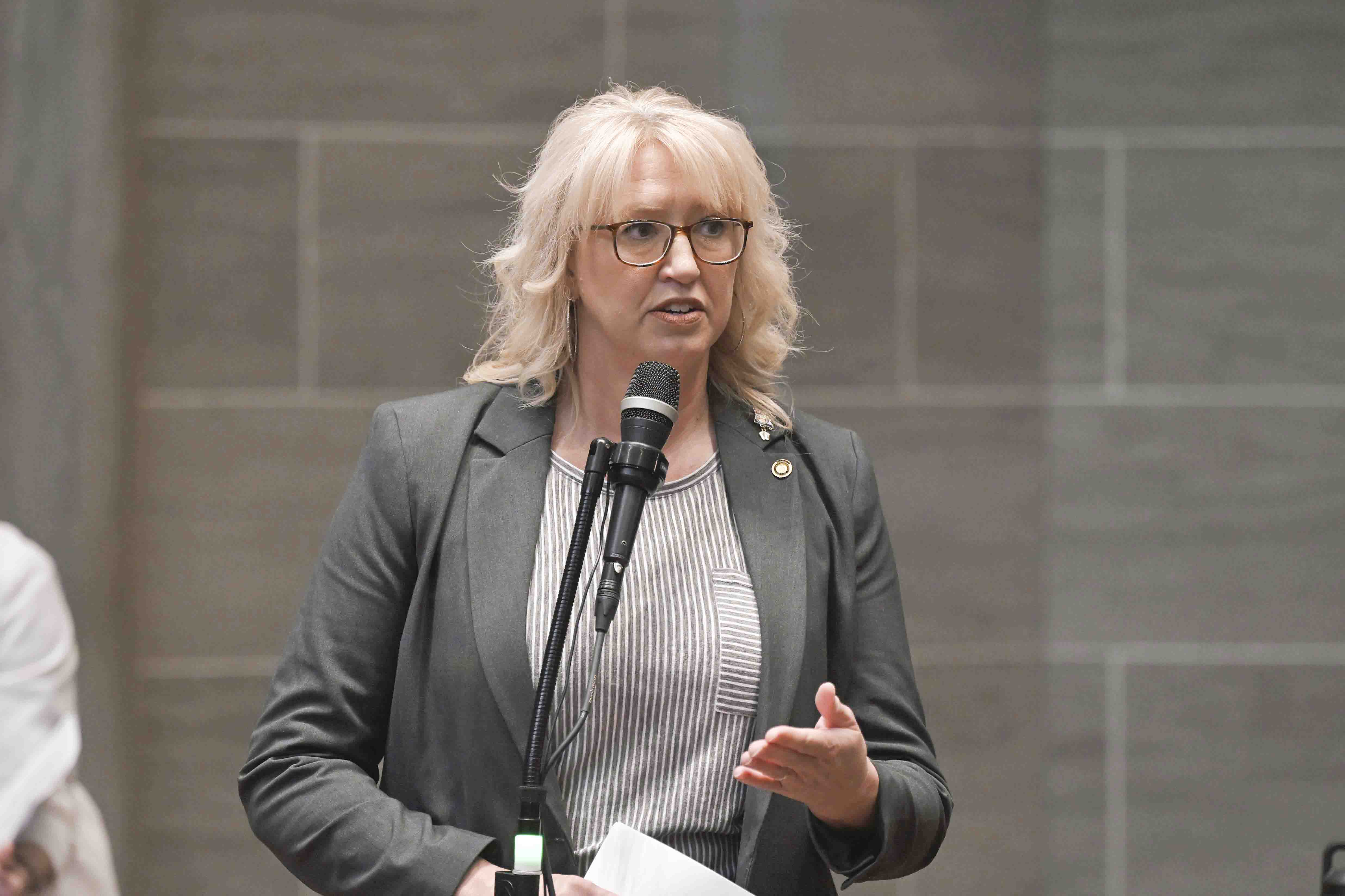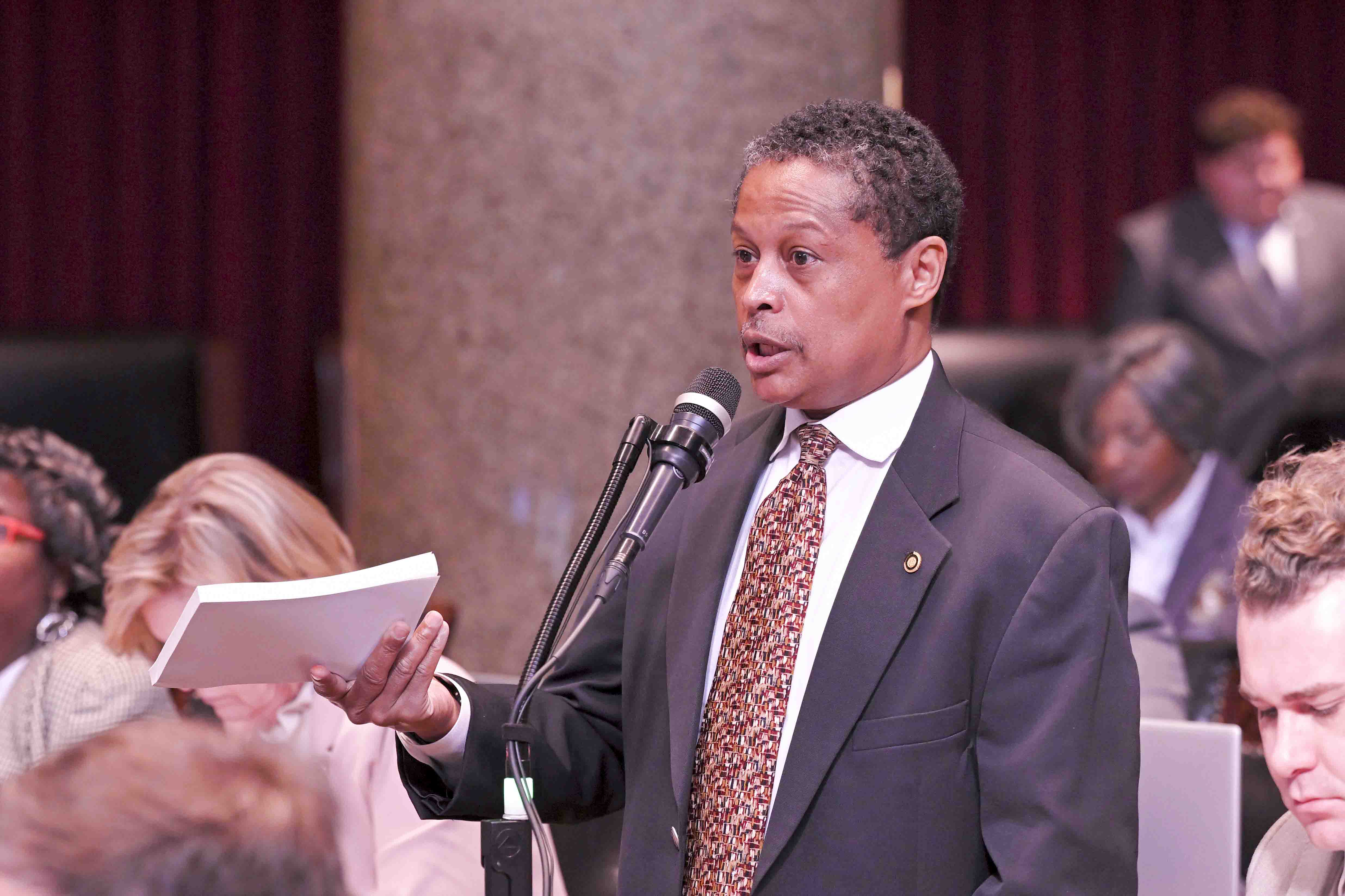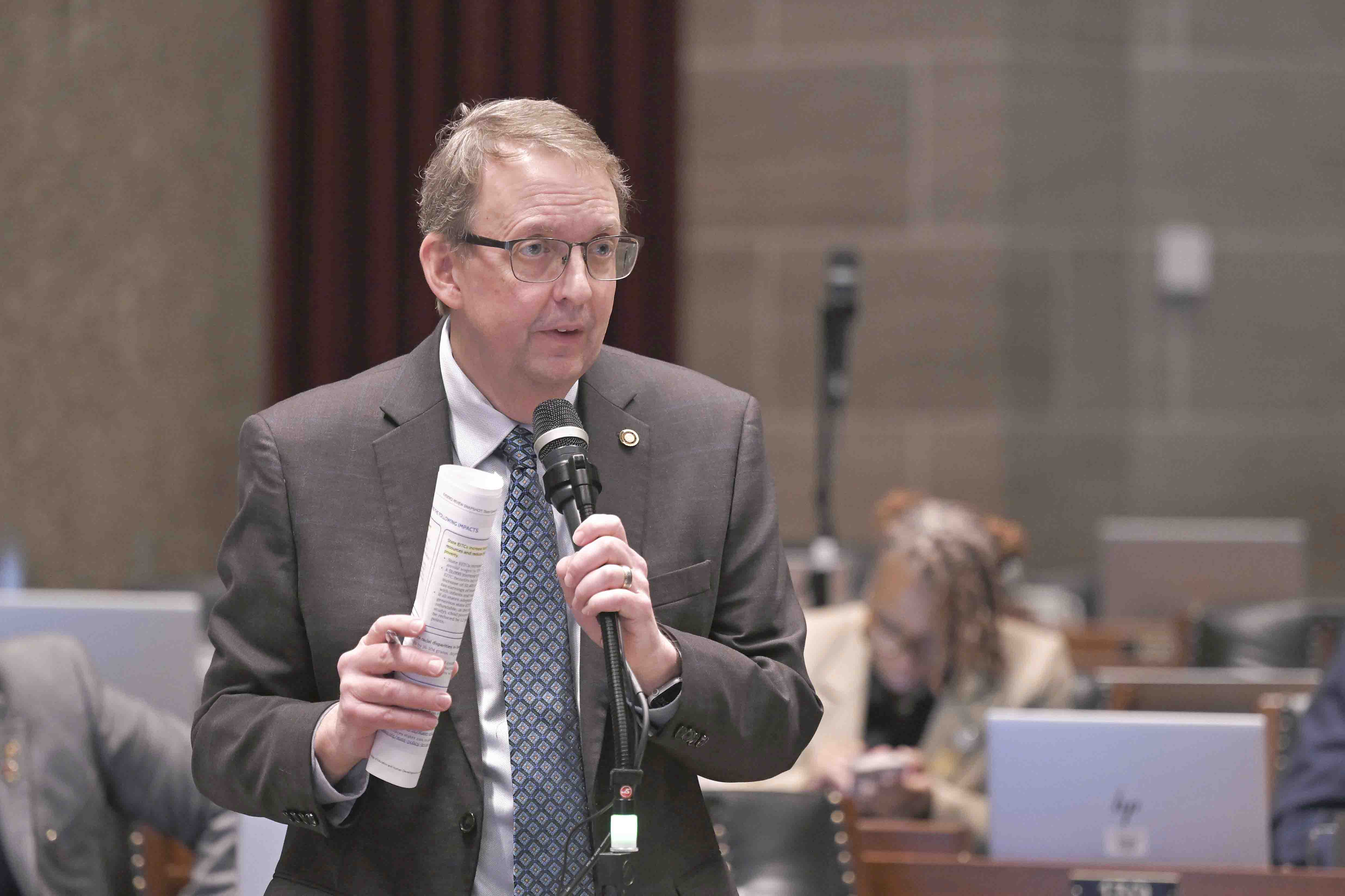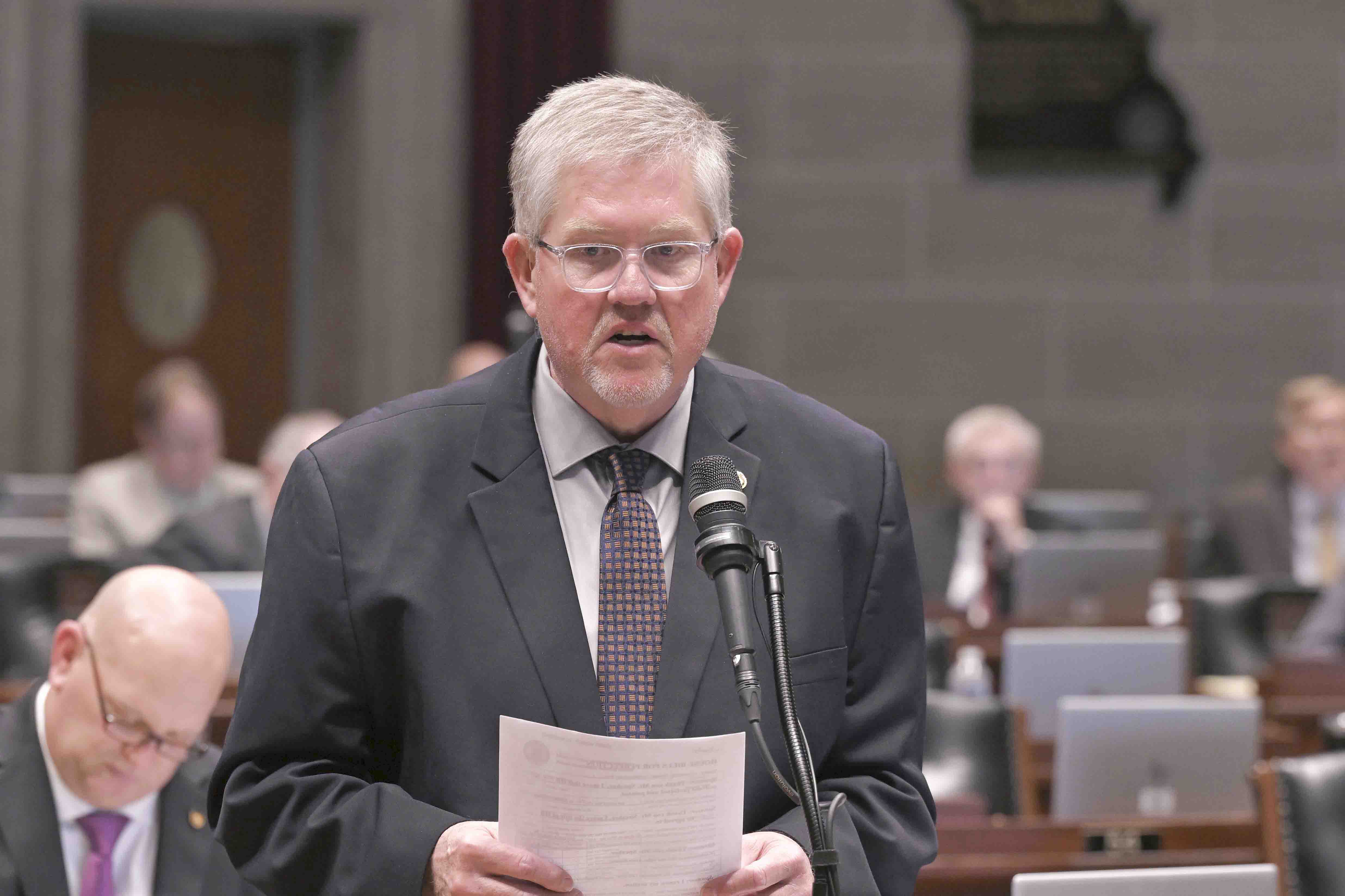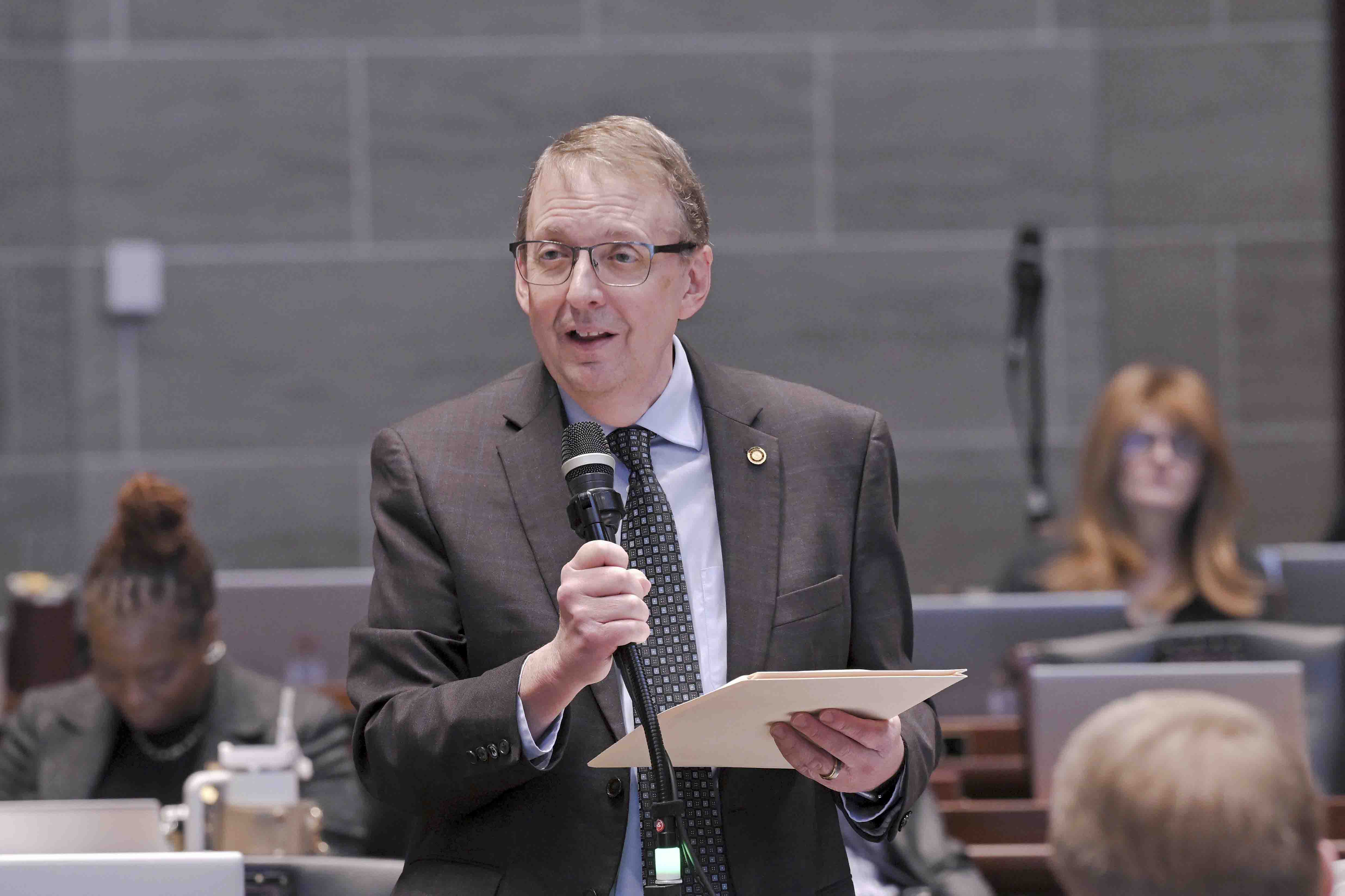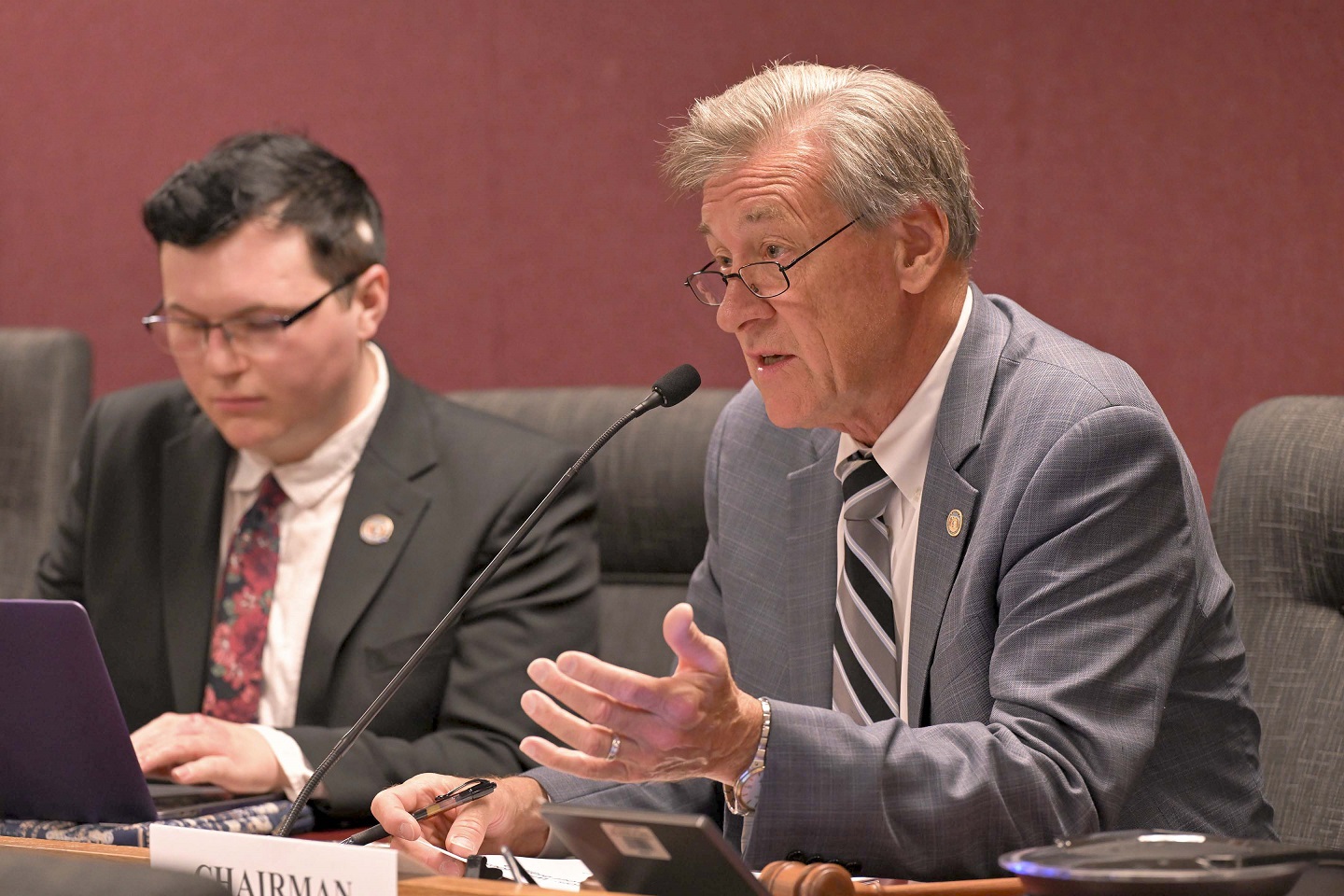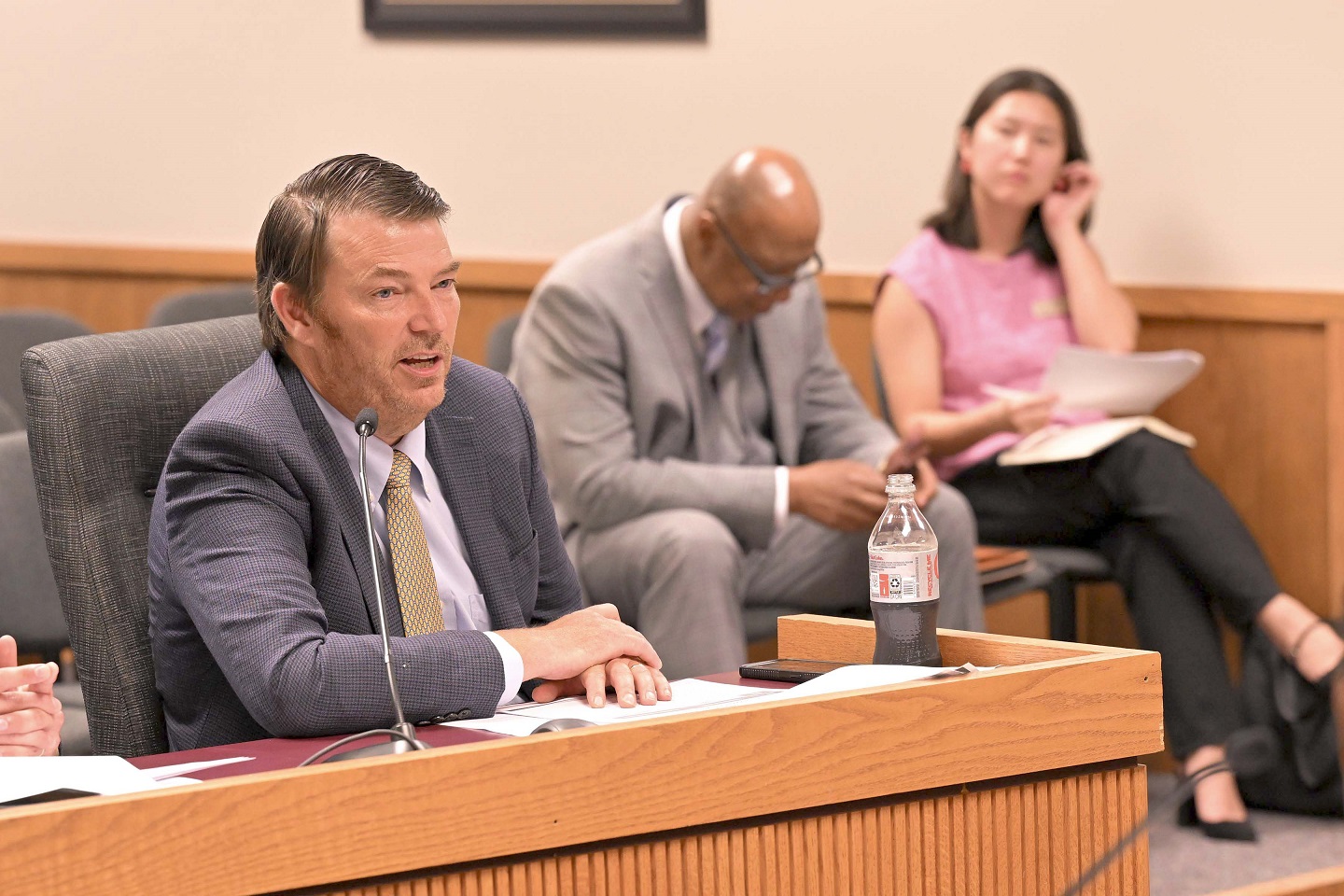House Democrats spoke to reporters and took questions about this week’s work in the House, and what is expected in the final three weeks of the legislative session.
Tag: Del Taylor
House Votes to Stem Penalties when Tax Credits Meet Caps
Many Missourians are already not a fan of tax filing day, which came this week. As Representative Becky Laubinger (R-Park Hills) explains, some of them have been surprised with additional reasons to be aggravated, in past years.
The issue Laubinger’s bill deals with is that when there are enough claims against a state tax credit for it to reach its annual cap, some claimants, even though they met all qualifications, will get a bill from the Department of Revenue for the amount they claimed, plus interest and penalties. This is in spite of the fact that there is no way for them to know that cap would been reached.
House Bill 828, “would remove the penalties and interest for someone who qualified for a tax credit but the state hit the cap. They would still have to pay their taxes in full within 60 days or they would receive penalties and interest,” Laubinger told her colleagues.
Those bills from the Department of Revenue put some Missourians off claiming tax credits, many of which benefit benevolent organizations such as food banks, children’s crisis centers, domestic violence shelters, and other charities that serve those most at need in their communities.
Arnold representative Phil Amato (R) for many years was the president of his local food pantry. He has sponsored similar legislation, having experienced firsthand what happens when these bills are sent out.
“Sometimes it takes you two to three years to talk somebody that has the wherewithal to write a check, and you tell them that it’s a 50 percent tax credit, that they’re going to get half their money back, and then they get a letter from the Department of Revenue that some of their donation has been disqualified, and then adding insult to injury is they’re charging them penalty and interest,” Amato explained. “Then the person is really upset because you’ve convinced them, ‘It’ll make you feel good to write this check to the local food pantry and help people that are hungry.’”
Laubinger’s bill enjoys broad bipartisan support, with no votes being cast against it as went through two House committees and was advanced to the Senate, 151-0.
Representative Del Taylor (D-St. Louis), the top Democrat on the House’s Ways and Means committee, through which the legislation was passed, urged those in his party to support the proposal.
Amato said he would like to know whether the state is even making back the money that it spends on collecting these taxes and penalties.
It’s now up to the state’s Senate to consider Laubinger’s proposal, but the House will have another chance to act. The Senate version of her bill is awaiting action in a House committee.
Either way, Representative Kemp Strickler (D-Lee’s Summit) is one of the many who hopes it will reach the desk of Governor Mike Kehoe (R).
Other provisions in the bill would add to the income tax deduction for the sale or lease of farmland to beginning farmers a definition of “taxpayer;” and would stipulate that filing day for Missouri taxes must always coincide with the federal tax filing day.
VIDEO: House Democrats media conference 04-10-2025
Missouri House Democrats discussed what happened this week and looked ahead in the House.
House Votes to Rein In Vehicle Assessments
The House voted unanimously this week to ensure that Missourians would not experience increases in the taxes they pay for vehicles ever again.
House Bill 816 is the latest attempt by representatives to block something that happened post-Covid from being repeated. During and after the pandemic supply lines for parts and vehicles were hindered, and the demand for, and value of, used vehicles was inflated. That meant Missourians’ property tax bills also increased.
“If you will remember, in 2021 and ’22, people saw the assessment values go up on their cars and when those assessments went up their taxes went up, and that was kind of caused by the market value of used cars,” recalls bill sponsor Rodger Reedy (R-Windsor).
He told his colleagues in the House Chamber, “Many of you in this room, if you go back and look at your tax bills from ’21, ’22, ’23, you are paying more money on the same car that was a year older, that had maybe 20 or 30 thousand more miles on it, and it was not right.”
Reedy said part of the problem is that state law requires assessors to use the October issue of the National Automobile Dealers Associations (NADA) Used Car Guide to determine the value of vehicles. Reedy and others have proposed for several years now that the law allow the State Tax Commission to select a publication from those available, for assessors to use that year.
“I don’t believe that we should be putting in statute that you have to do business with a certain company, and this corrects that … they may be one that bids on it and they may be the best bidder, but it gives the other companies the opportunity to do that as well,” said Reedy. “What they would do is do a bidding process with different companies to provide that information and then, basically, they would probably use the lowest and best bid, which in turn would save taxpayer dollars.”
Reedy’s proposal would also state that no vehicle can be assessed at a value greater than it had, the year prior.
Though the proposal has not reached the governor’s desk in past years, that has not been for lack of bipartisan support.
Lee’s Summit Representative Kemp Strickler (D) said the bill would be, “a great way to make sure that the issues that we saw during Covid don’t reoccur, where again, those used car values, those should be going down and the amount that people pay on those should be going down. We know that there was an artificial bubble back then. I think this does a really good job of addressing that and making sure the taxpayers aren’t on the hook if that happens ever again.”
Representative Del Taylor (D-St. Louis) called the tax increases during Covid an “anomaly” that should be prevented, “and basically he’s saying that no, the assessment cannot exceed what it was last year. Excellent idea.”
HB 816 receive no “no” votes in three House committees and the full Chamber, the latter of which voted 157-0 to send it to the Senate.
Task Force resumes look at Missouri’s response to substance abuse
A Task Force that hopes to advance Missouri’s response to substance abuse has resumed work.
The Substance Abuse Treatment and Prevention Task Force met in the 2023 interim and developed recommendations for the legislature, some of which were enacted. One of those was that it be continued this year, and its chairman, Representative John Black (R-Marshfield), is glad that was passed.
“I think we’ll do more or less the same thing we did last year. We’ll look at some of the issues that we’ve identified for review this year and then hopefully the Task Force will continue to refine those and come up with more issues. The budget, of course, is a big deal,” Black said after the Task Force met Monday.
Representative Del Taylor (D-St. Louis) is glad to be a part of the group.

“Missouri, as our counterpart 49 other states, as well as most countries in the world, are really struggling with getting our arms around substance abuse disorder.” He said the group heard from experts Monday that, “[Substance abuse] is kind of how we respond to our own different mental illnesses.”
The Department of Mental Health’s Chief Medical Director, Dr. Angeline Stanislaus, opened the session with a discussion of the neurobiology of addiction. She said much has been learned in the last three decades that can guide the state’s programs.
It was believed in the medical field some 20 or 30 years ago that when a substance was out of a person’s system and they resumed using it, it was by choice and they had an issue with discipline or willpower.
“That was the mindset in which we were trained as physicians in the 1990s,” Stanislaus said. “There’s been more research now to show that just because a substance is out of the system … but all the neurotransmitter changes the substance did before it got out, they’re still lingering and the body’s still working on them. This is the new understanding over the last couple of decades, it took us this long to understand that.”
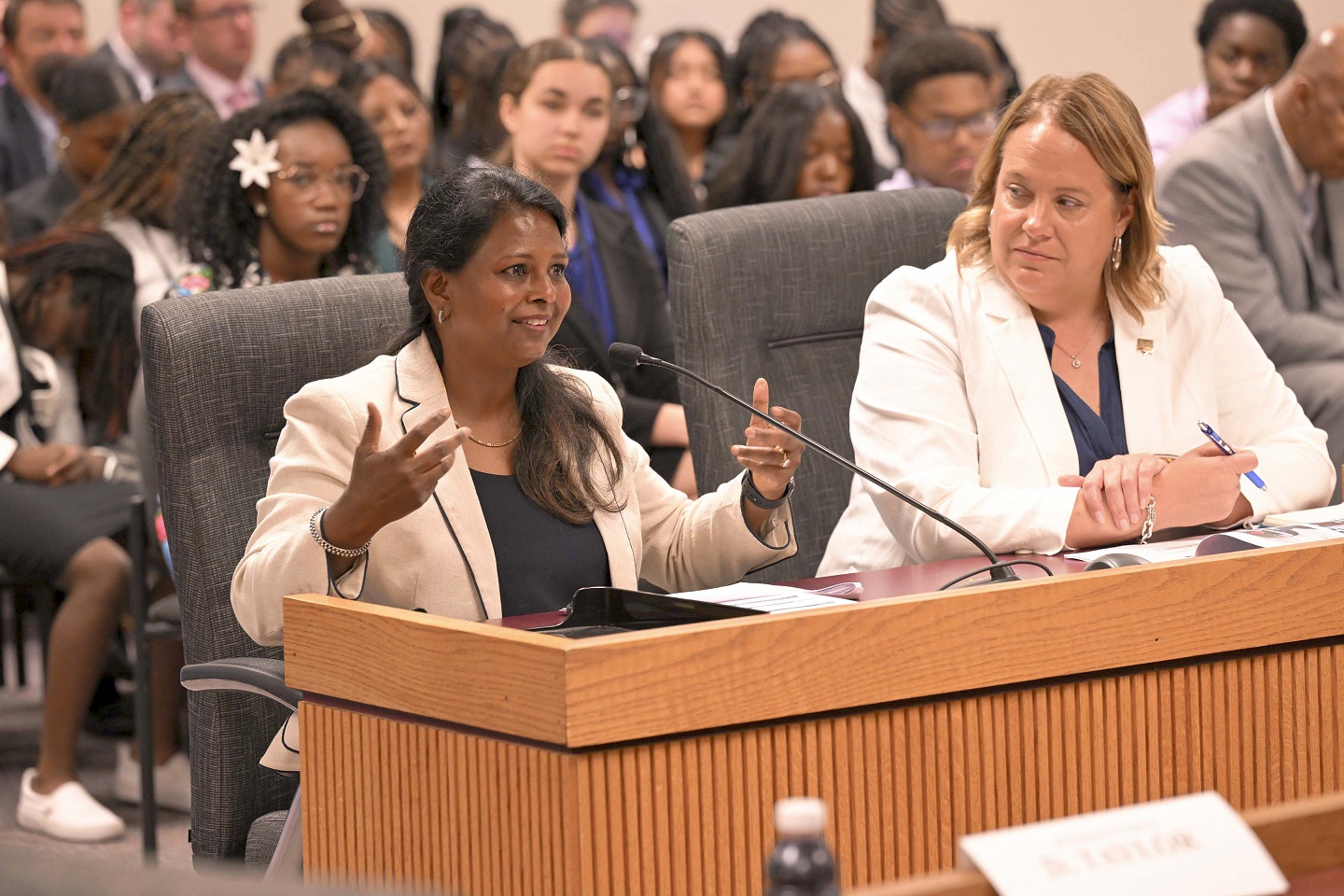
Stanislaus said many people who abuse substances like alcohol, cocaine, and heroin do so because they were victims of childhood abuse or neglect that altered their brain chemistry.
A brain disrupted by substance abuse will never return to what it was before, but it can heal.
Former Missouri House Speaker Todd Richardson has been the Director of MO HealthNet since 2018. Much of what the Task Force discussed with him was its recommendation from last year that a new state executive be created – what members have tentatively referred to as a “czar” – to oversee substance abuse issues across the various state departments that deal with those.
He said while the idea has merit and could work, giving one figure authority over three, four, and even five departments and asking that person to understand and take on all that is involved in substance abuse issues, could prove too much to ask.
He thinks the effort the Task Force has set in motion should be given time to work.
To the Task Force’s credit, Richardson said, “I do think the focus that this task force has put on it has already led to more collaboration and coordination and discussion about this subject than I’ve seen in the 15 years I’ve been coming to Jefferson City.”
Taylor appreciates the different backgrounds brought to the group. A budget-minded legislator himself, Taylor hopes to get more data about Missouri’s substance abuse response.
Some members weren’t present at Monday’s hearing due to technological or medical issues. Black hopes more members will be able to attend in subsequent hearings.
The Task Force will meet again in July.
